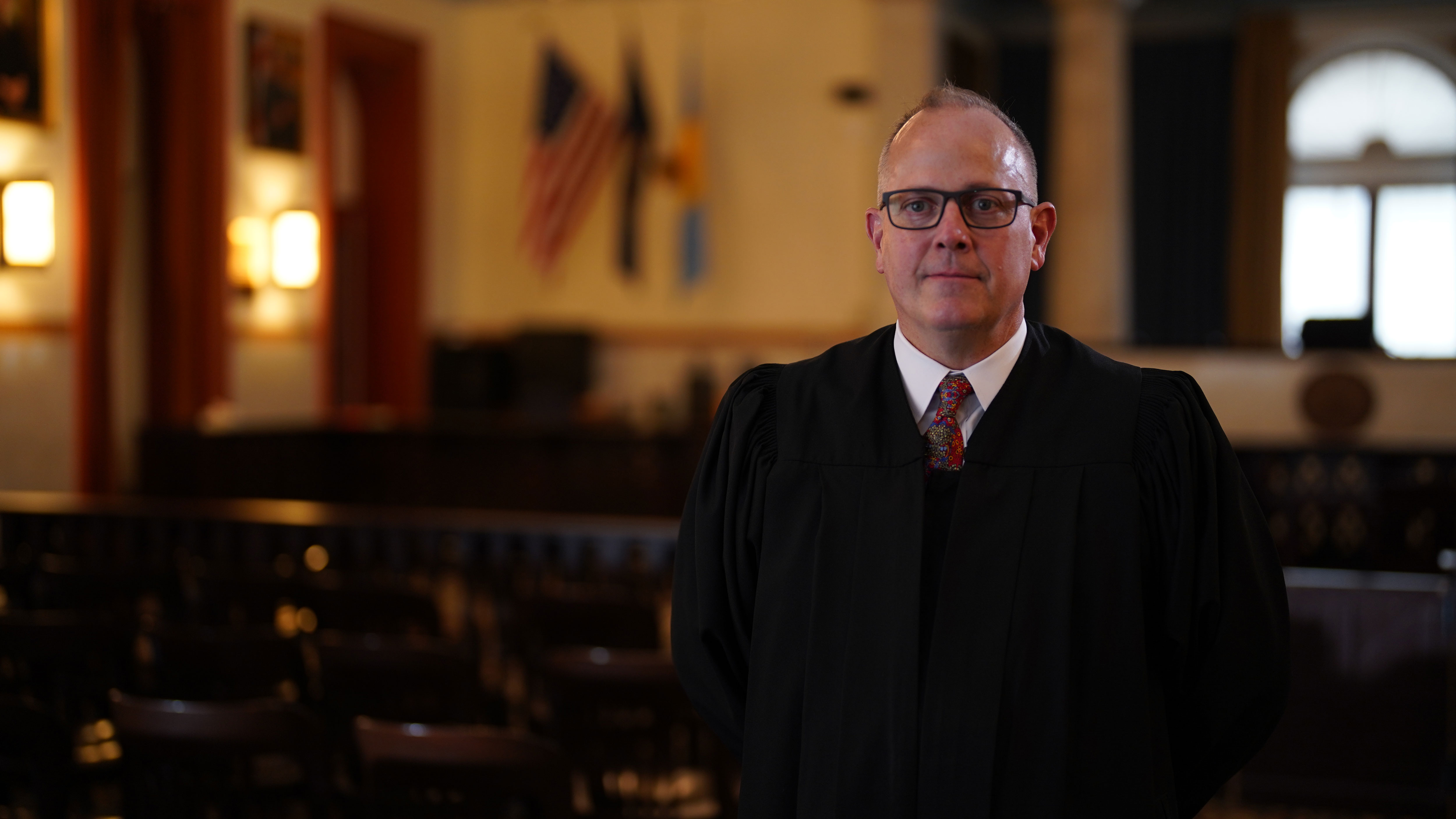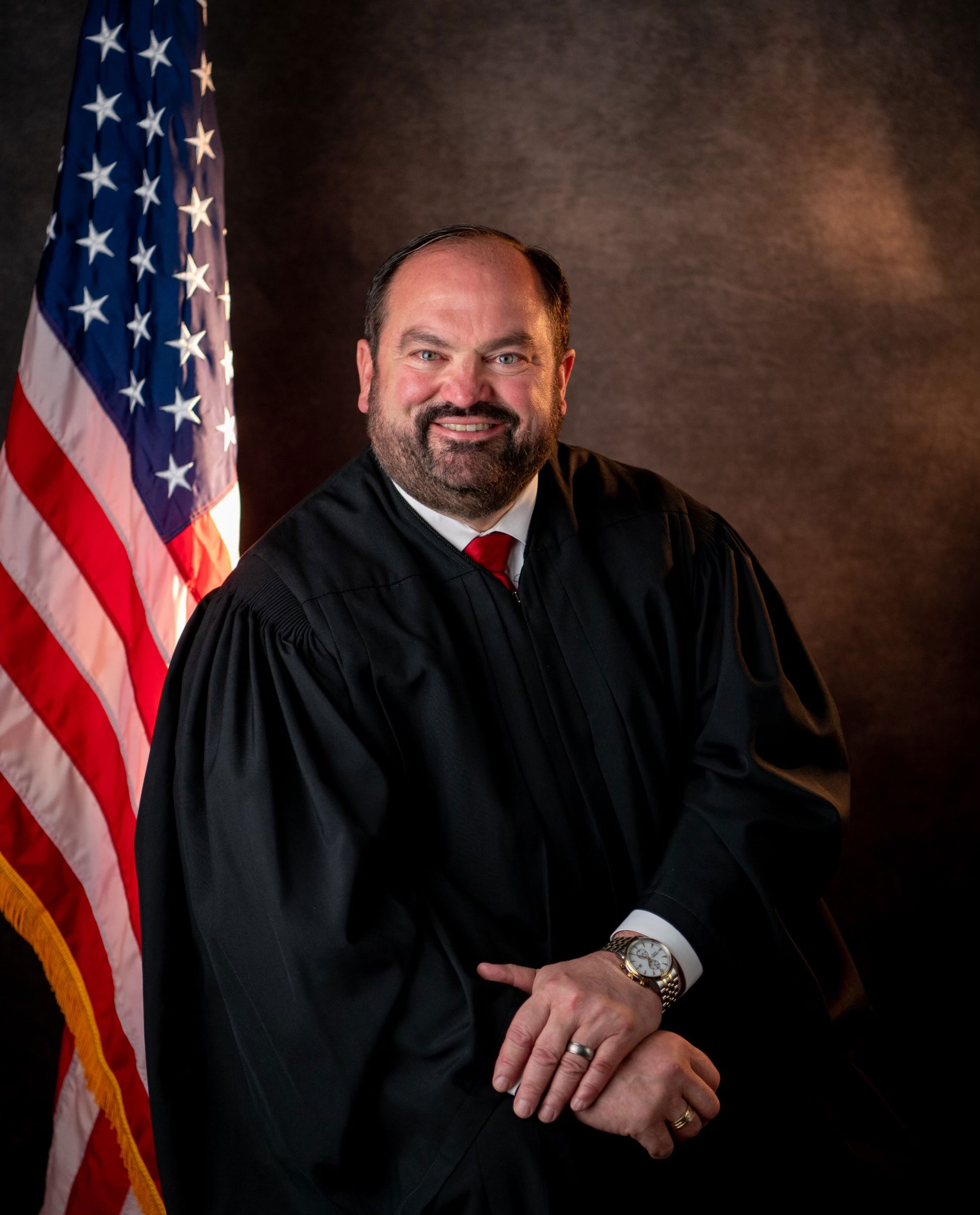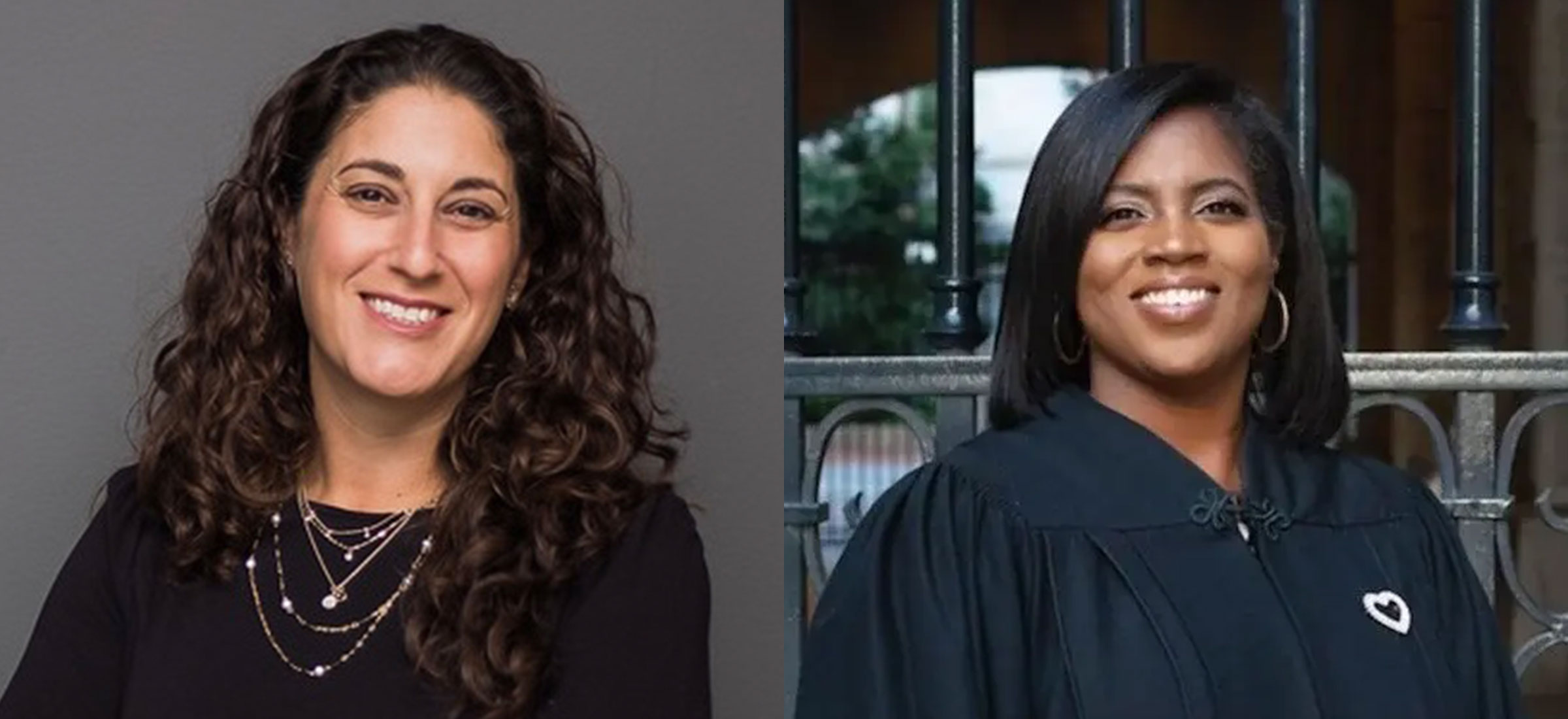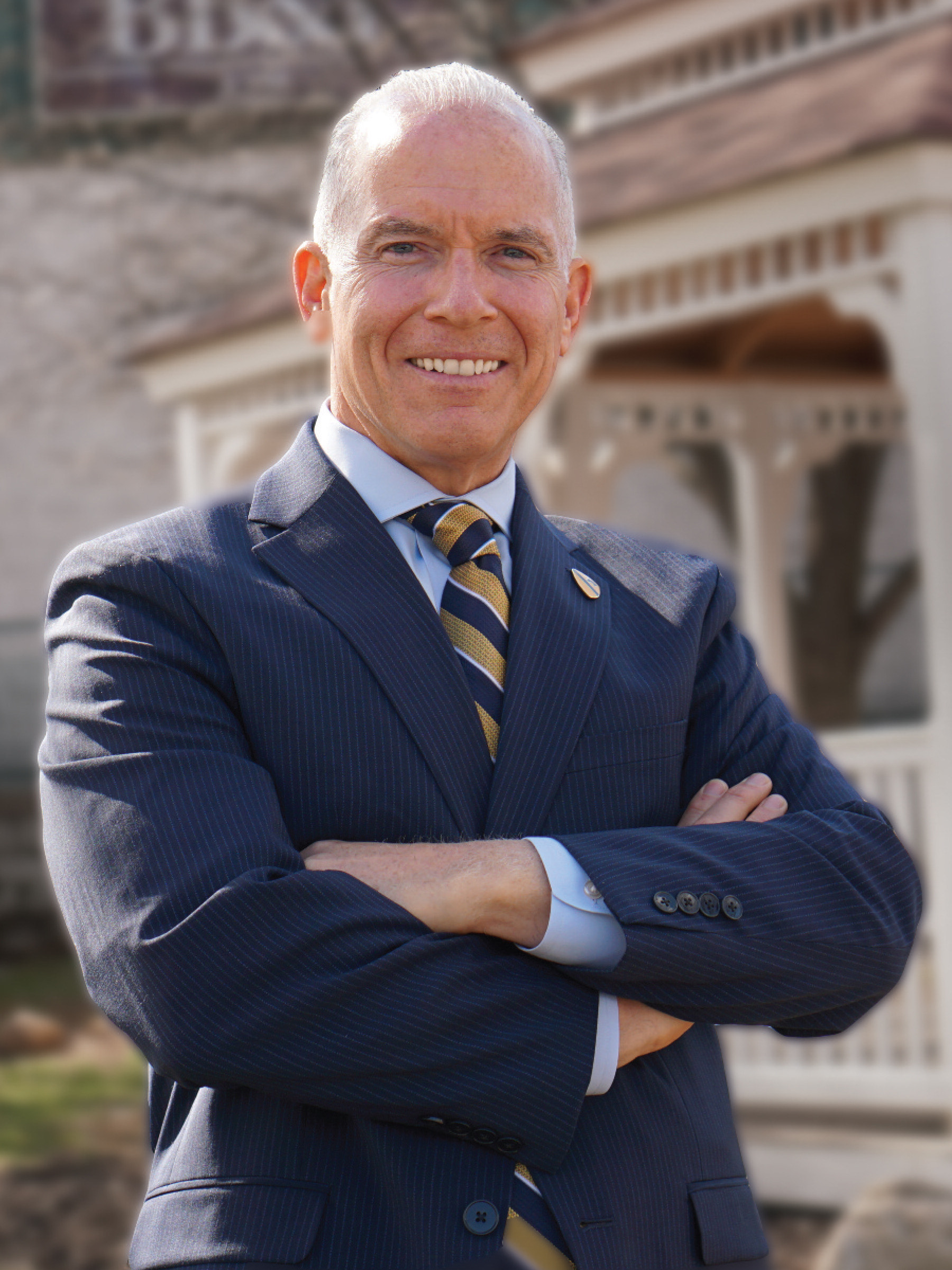Campaigns & Elections
The 2023 City & State Election Preview Part II: Of Courts!
Everything you always wanted to know about the judicial races – and more

The Pennsylvania Supreme Court chamber in the state Capitol. KYLE KAUFFMAN
Pennsylvania’s appellate courts have played a central role in many of the commonwealth’s most important and hot-button political discussions, from the early days of COVID-19 pandemic restrictions to making pivotal decisions regarding the 2020 presidential election. Yet elections for the third branch of state government generate just a fraction of the attention bestowed upon other races.
This year alone, there are open seats on three of Pennsylvania’s appellate courts: one open seat on the state Supreme Court, two open seats on the Pennsylvania Superior Court and one opening on the Commonwealth Court.
Judicial elections can be complicated, so City & State has put together a guide with what you need to know about this year’s appellate court elections in Pennsylvania, as well as how each court operates within the commonwealth’s judicial system.
History of Hierarchy
The impacts of judicial elections span from the statewide criminal cases handled by the state Supreme Court to the civil and criminal matters taken on by judges in Superior Court, Commonwealth Court, municipal courts and magisterial district courts.
According to the Judicial System of Pennsylvania’s history, the commonwealth’s judiciary began as a collection of decentralized courts, some of which were inherited from the reign of the Duke of York, while others were established by William Penn during the 1600s. The provincial appellate court was established in 1684, but until the Pennsylvania Supreme Court was created in 1722, all final appeals had to be taken to England.
The Judiciary Act of 1722, which wasn’t approved by the crown until 1727, established the Pennsylvania Supreme Court, provided for a chief justice and two justices, and outlined the Court of Common Pleas in the areas of Philadelphia, Bucks and Chester Counties.
Once the state’s constitution was developed in 1776, a foundation was laid for a statewide judicial system. Constitutional changes throughout the 18th and 19th centuries began grouping counties into judicial districts and designating methods for voting and appointing judges. And in 1895, the Superior Court was created to ease the caseload burden of the state Supreme Court. In the process, the intermediate appellate courts – and the statewide system as we know it today – formally took shape.
“The appellate courts interpret Pennsylvania law and, in essence, they can be the final interpreter. Their decisions can impact Pennsylvanians in almost every aspect of your life,” said Deborah Gross, the president and CEO of Pennsylvanians for Modern Courts, a nonprofit that educates Pennsylvanians about the court system and advocates for judicial reforms.
Gross said that while the Pennsylvania Supreme Court gets most of the attention, all of the state’s appellate courts play an important role. “I feel as though we in Pennsylvania don’t give enough weight to all of our appellate courts,” Gross told City & State in an interview. “We place everything in the Supreme Court basket, but all of our appellate courts are important because they make decisions that can impact people’s everyday lives.”
Intermediate Appellate Courts
In 2023, voters will select new judges for the intermediate appellate courts – one for Commonwealth Court and two for Superior Court.
In the race for Commonwealth Court, it’s Republican Megan Martin going up against Democrat Matt Wolf.
The Commonwealth Court is a one-of-a-kind appellate court that largely focuses on state and local government matters. It is composed of nine judges elected to 10-year terms.
Martin is a known name in the Harrisburg area, having served as the state Senate parliamentarian, where she presided over floor proceedings and ensured the chamber followed the state constitution, law, precedent and chamber rules for more than a decade. Prior to her time in the Senate, Martin was a staffer and then attorney for former Republican Govs. Tom Ridge and Tom Corbett, as well as an attorney for the U.S. Navy and a law clerk for a Lancaster County Judge.
In surveys with conservative interest groups, Martin described herself as a “strict constructionist,” adding that she does not believe the Constitution is a “living document.” She also agreed with the U.S. Supreme Court majority opinion that overturned Roe v. Wade, which calls Roe an “egregiously wrong” decision and compares it to Plessy v. Ferguson, which affirmed the constitutionality of segregation.
The Democratic Commonwealth Court candidate is Philadelphia Municipal Court Judge Matt Wolf. Wolf has served in his current role since 2017 and noted in a candidate questionnaire that he has presided over more landlord-tenant cases than any other municipal court judge. Wolf’s experience is as a trial attorney, where he spent 25 years at various firms working on civil rights cases.

Wolf also comes from a military background, having joined the U.S. Army Reserve in 2003 and serving as an officer and legal adviser during deployment in Iraq and Afghanistan. More recently, Wolf joined the Pennsylvania National Guard, where he helps train members at Fort Indiantown Gap.
Spotlight PA reported that during a forum hosted by Pennsylvanians for Modern Courts before this year’s primary election, Wolf called judicial activism “not productive” and argued he is uniquely qualified as the only candidate with experience as a judge.
The race for the two Superior Court seats is a bit more crowded, with Republicans Maria Battista and Harry Smail matching up with Democrats Jill Beck and Timika Lane.
This court serves as an appeals court for citizens and businesses, and is touted by the state’s court system as one of the busiest intermediate appellate courts in the country. “The Superior Court can actually hear every single kind of case, because they don’t have discretion and they have to take every kind of appeal,” Gross said. “If you have a decision that comes from the Court of Common Pleas and you decide you’re not happy with it for whatever reason, it’s automatically appealed to the Superior Court.”
Battista, from Clarion County, previously served as assistant general counsel for the health and state departments under Corbett and Democratic Gov. Tom Wolf. She also worked as a prosecutor in Franklin and Venango Counties and, more recently, worked as a contract specialist for the Department of Defense before leaving to run for office. The Pennsylvania Bar Association did not recommend Battista – the only intermediate appellate court candidate without a PBA recommendation – after she declined to participate in their judicial evaluation process.

Harry Smail – a Westmoreland County Court of Common Pleas Judge since 2014 – is also on the Republican ticket for Superior Court. Smail previously was a private practice attorney who ran unsuccessfully for a handful of county offices and served as solicitor for two county row offices. The PBA rated Smail “Recommended” due to “his extensive background, legal ability and temperament.”
On the Democratic ticket for Superior Court are Jill Beck and Timika Lane. Beck, a Pittsburgh-based attorney working in commercial litigation, previously clerked for Judge Christine Donohue on the state Supreme and Superior Courts and worked at Blank Rome LLP. Beck also ran for Superior Court in 2021 but lost to Lane in the primary election. The PBA rated Beck “Highly Recommended,” writing that she possesses “the highest combination of legal ability, experience and integrity.”

Lane has served as a Philadelphia Court of Common Pleas Judge for a decade in the Complex Litigation Center. Lane, who lost to Republican Megan Sullivan in the race for Superior Court in 2021 after defeating Beck in the primary, has clerked for Judge Renee Cardwell Hughes on the Philadelphia Court of Common Pleas, worked as a trial attorney in the Defender Association of Philadelphia, and served as legal counsel for state Sen. Anthony Williams.
The PBA rated Lane as “Highly Recommended,” saying that it is “confident the candidate is capable of outstanding performance as a Superior Court of Pennsylvania judge.”
There are also two candidates on the Superior Court up for retention this year: President Judge Jack A. Panella and Judge Victor P. Stabile. In retention elections, voters can vote “yes” to retain each judge for another 10-year term, or they may vote “no” to vacate the seat, according to the state constitution. Both judges in this case were “recommended for retention” by the state bar association.
The High Court
The state Supreme Court has the final say on judgments related to Pennsylvania law and the state constitution, and has administrative authority over its judicial system.
It also has discretion over the types of cases it hears, and can use its “King’s Bench” power to consider cases that are pending in a lower court – if it so chooses. In the past, the court has exercised its special powers on election disputes, employee strikes and prison issues, according to the Administrative Office of Pennsylvania Courts.
However, Gross noted that these powers are used sparingly. “There is a limited opportunity for a Supreme Court through this King’s Bench power to have a case first – the first bite at the apple – but it doesn’t happen often,” she said.
This year’s race pits Pennsylvania Superior Court Judge Daniel McCaffery, a Democrat, against Republican Carolyn Carluccio, the president judge of the Montgomery County Court of Common Pleas.
Both candidates come highly recommended by the Pennsylvania Bar Association, which rates candidates based on their legal ability, trial experience, character, financial responsibility and temperament, among other criteria.

The association, in its recommendation for McCaffery, said the Superior Court judge is “an experienced jurist known for his high degree of professionalism, good judicial temperament and strong work ethic.”
Citing his experience as a former assistant district attorney in Philadelphia, his stint on the Philadelphia Court of Common Pleas and his time as a partner at a law firm, the PBA said McCaffery’s “legal career has taken several paths that allowed the candidate to attain substantial experience in a variety of areas.”
Carluccio, who also comes highly recommended by the bar association, is a “well-respected jurist, described by those appearing before her as highly intelligent, energetic, courteous, respectful and fair,” according to the PBA’s assessment.
Despite the fact that this race’s outcome won’t have any significant impact on the Supreme Court’s makeup – Democrats currently hold a 4-2 advantage – the winner will likely hold a tiebreaking vote in many cases. Combine that with this being yet another litmus test for the future of reproductive rights – Carluccio has been endorsed by two state anti-abortion groups and, while she hasn’t publicly stated her views, she did have a résumé on her campaign website that stated she is a defender of “all life under the law.” McCaffery has clearly stated his support for reproductive rights and has been endorsed by groups like Planned Parenthood.
